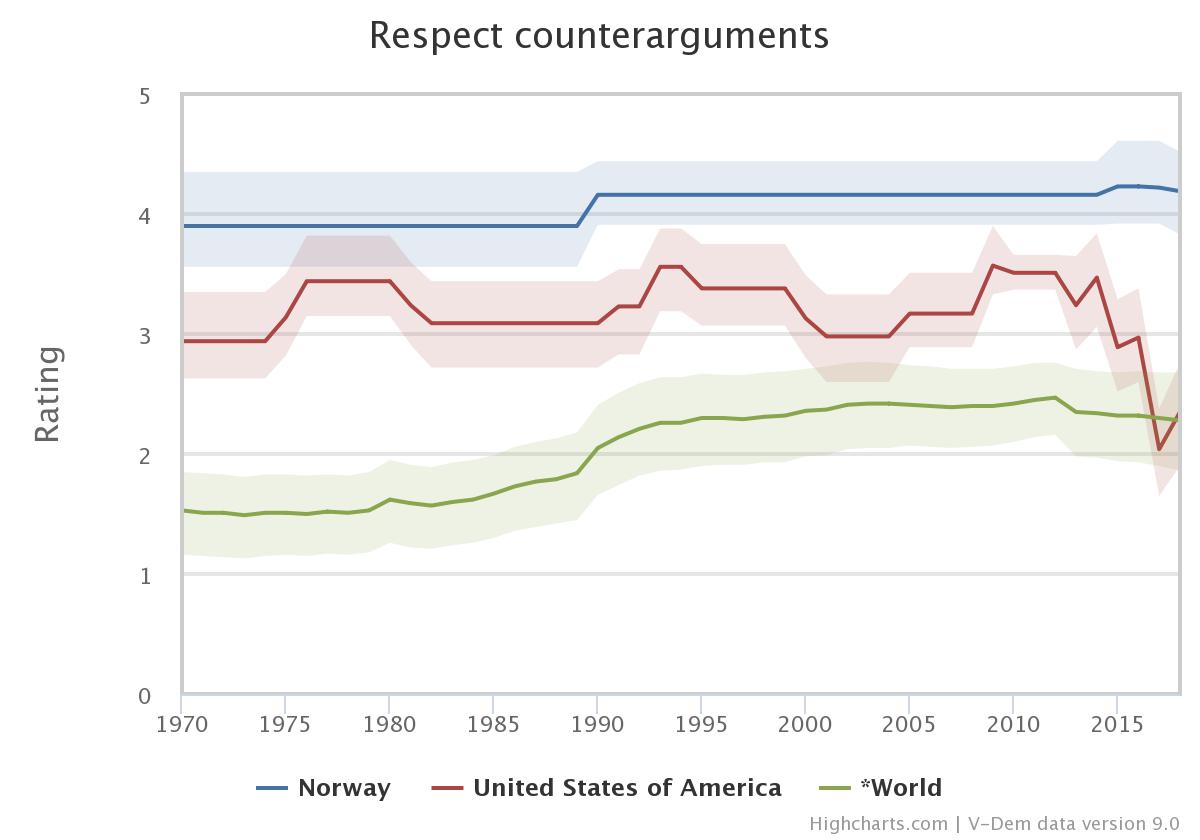The U.S. Senate – the world’s greatest deliberative body?
By: Lukas Bernhard
Feb 10, 2020
Last week, the impeachment trial of President Donald Trump ended in acquittal without calling any additional witnesses or evidence in a partisan-tinged process that reflects the increasingly polarized political context in the United States. Recently, Chief Justice John Roberts of the United States Supreme Court argued that the United States Senate is the “world’s greatest deliberative body”. V-Dem data on respect for counterarguments among political elites may suggest otherwise.
In an earlier graph we showed that the executive branch of the United States has had higher instances of corruption and less respect for the constitution over the past few years, but is less likely to be investigated for these actions. This week we use the V-Dem indicator capturing respect for counterarguments to look at the impeachment process from another perspective. Using this indicator, we evaluate the deliberative quality of elites in the United States. Specifically, this indicator measures to “what extent political elites acknowledge and respect counterarguments“ when important policy changes are considered. The possible values range from 0 to 5, whereby higher scores indicate more respect for counterarguments.
The graph shows a significant decline for the United States over the past decades – with the most severe drop (nearly one scale point) between 2016 and 2017 – resulting in the lowest score since 1900 (2.04). For the first time, the U.S. fell below world average. This corresponds to a situation where “elites tend to acknowledge counterarguments but then explicitly degrade them by making a negative statement about them or the individuals and groups that propose them.” As a comparison, Norway currently scores highest on this variable (4.19) and seems to be quite stable over the last 50 years. Indeed, it appears to currently have the “most deliberative” political institutions in the world.
To learn more about democracy trends in the United States and elsewhere using the V-Dem analysis tools, visit www.v-dem.net/analysis.


